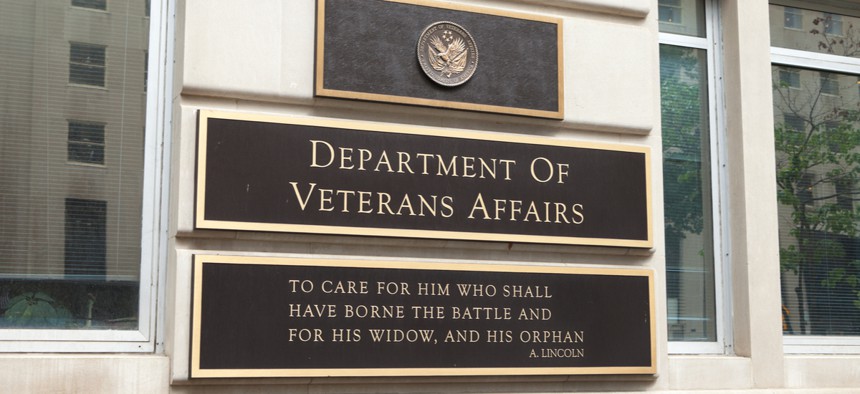VA Overpaid $4.5 Million in Benefits Because It Didn't Read Emails, Watchdog Says

Mark Van Scyoc/Shutterstock.com
The problem wasn’t IT infrastructure, but rather a lack thereof.
The Veterans Affairs Department paid out an extra $4.5 million in duplicate benefits last year because officials were late reading email alerts to update payments, an internal watchdog found.
The Veterans Benefits Administration last year simultaneously awarded some 1,300 veterans benefits under two different childhood educational assistance provisions, according to the Veterans Affairs Inspector General. The overpayments, which occurred when veterans’ dependents were double counted, stemmed from the agency’s antiquated system for processing benefit adjustments.
And the problem wasn’t IT infrastructure, but rather a lack thereof, they said.
Disabled veterans can receive allowances for college-aged children who are enrolled in school, and dependents are also eligible for support under the Survivors’ and Dependents’ Educational Assistance Program, or DEA. However, those benefits can’t overlap. When dependents begin receiving DEA benefits, Veterans Affairs officials are responsible for notifying regional offices via email to stop paying out school child allowances for those individuals.
But auditors found those emails often went ignored.
Offices don’t set requirements for how often to check the inbox for DEA benefit adjustments, they found, and in many cases, there was no one person responsible for doing so. As of May 7, there were some 3,100 unread benefits adjustments emails across 25 regional offices, including one facility that hadn’t monitored its inbox for more than three years, the report said.
“These unread emails all potentially required DEA-related compensation benefit adjustments and, therefore, equate to an unidentified amount of benefit duplication and overpayments,” inspectors wrote. They called the email notification system “outdated and ineffective,” and recommended the agency implement a new system to ensure these updates were received and processed.
They also advised the agency to develop an IT system that automatically flags cases where duplicate payments might occur. If the agency doesn’t make these changes, the IG estimated it will overpay roughly $22.5 million in benefits over the next five years.
Because benefits adjustment emails weren’t actively read, it took officials significantly longer to process adjustments than anticipated. The department aims to update benefits packages within 90 days, but auditors found that it took 350 days on average to process changes, resulting in months of duplicate payments.
The overcompensated vets, who each received an extra $3,500 on average, will be required to repay the extra money.
The Veterans Benefits Administration has recently found itself in hot water after a delayed IT overhaul left tens of thousands of vets waiting months for G.I. Bill benefits. The system upgrade, which was expected to be completed this August, is now scheduled to wrap up by Dec. 1, 2019.






